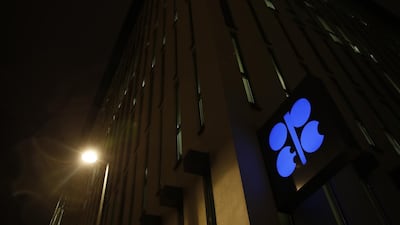Opec and producers allied with the exporters' group are facing a renewed deadlock, which last year thwarted a global deal and led to oil exporters raising production to some of their highest levels on record. The inability of the alliance to agree on future production increases has left the market undersupplied and forced crude prices to increase, raising inflation concerns. The stalemate once again throws light on the workings of Opec and its ability to influence global oil market dynamics.
Here is a run down on the organisation and its role in oil markets:
What is Opec?
Opec stands for the Organisation of the Petroleum Exporting Countries. It was created in 1960 by the top sovereign oil producers at that time – Iran, Iraq, Kuwait, Saudi Arabia and Venezuela – during a conference in Baghdad.
Why did it come into existence?
Opec evolved as an institutional bulwark to the "Seven Sisters", the collective name for the seven international oil and gas companies that dominated the global energy scene, controlling up to 85 per cent of the world’s crude reserves before the 1973 oil crisis. The companies, which later evolved or merged to become BP, Chevron, Shell and ExxonMobil, exercised significant economic and political clout in the Middle East, where they pushed for greater exploitation of resources at terms that were not often in the interest of the states. The decolonisation movement in the region, as well as the nationalisation of companies, notably starting with Iran, led to the need for an organisation that would represent the interests of sovereign producers.
Who are its members today?
In addition to the five founding members, Libya, the UAE, Algeria, Nigeria, Gabon, Angola, Equatorial Guinea and the Congo Republic are members today. Indonesia and Qatar were also part of the group but Jakarta left in 2016 while Doha parted ways in 2019.
Are there Middle East producers who are not part of Opec?
Bahrain, which was first GCC country to strike oil, is not part of Opec as its reserves matured quickly and production remains low. Oman, which also has one of the region’s highest break-even points for oil production, is also not a member. However, both countries take part in controlling their output as part of the broader Opec+ alliance.
What is Opec+?
Opec+ is the name used to refer to a "super group" of producers – Russia, Azerbaijan, Bahrain, Brunei, Kazakhstan, Malaysia, Mexico, Oman, South Sudan and Sudan – who are in alignment with Opec. The group came together in 2016 to reverse a record fall in oil prices after an influx of crude from US shale producers. Russia, which leads producers aligned with Opec, set aside its differences with Saudi Arabia to strengthen the bloc in the face of the threat posed by North American shale. The group and allied members have consistently worked together, apart from a brief fallout in April 2020, to calibrate their supply in line with global demand expectations.


